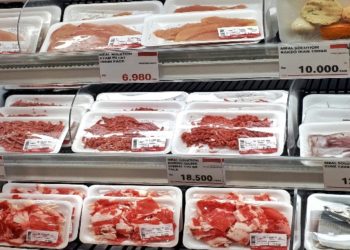Coffee lovers everywhere face a daily dilemma: organic or non-organic? Organic coffee is grown without synthetic fertilizers or pesticides, promising a purer taste and fewer chemicals. Non-organic coffee, on the other hand, often uses conventional farming methods that can be more cost-effective but may impact the environment and your health.
Studies show that organic coffee contains higher levels of antioxidants compared to its non-organic counterpart. According to research published in the Journal of Agricultural and Food Chemistry, organic coffee has a richer nutrient profile, which can contribute to better overall health. These findings make a compelling case for choosing organic, but the debate doesn’t end there.
Curious about how your daily cup of Joe impacts your health and the planet? Dive deeper into the differences between organic and non-organic coffee to make an informed choice that aligns with your values and preferences. Keep reading to discover which brew is truly best for you.
Key Takeaways
- Health Benefits: Organic coffee generally contains higher levels of antioxidants and polyphenols, contributing to better overall health compared to non-organic coffee.
- Taste and Quality: Organic coffee often offers a richer, more complex flavor profile due to its natural growth processes, whereas non-organic coffee may have a more consistent but less nuanced taste.
- Environmental Impact: Organic coffee farming supports soil health and biodiversity by avoiding synthetic chemicals and GMOs, whereas non-organic coffee farming can involve practices harmful to the environment, like deforestation.
- Cost Considerations: Organic coffee is typically more expensive due to labor-intensive farming practices and certification fees, reflecting its quality and ethical production standards.
- Ethical Factors: Purchasing organic coffee often supports better working conditions and fair wages for farmers, aligning with ethical labor practices, unlike some non-organic coffee farming methods.
- Availability and Variety: While organic coffee options are growing, non-organic coffee may still be more widely available and offer a greater variety of choices at accessible price points.
What is organic coffee?
Organic coffee is grown without synthetic fertilizers or pesticides, offering a purer taste and fewer chemicals.
How Organic Coffee is Grown
Organic coffee cultivation follows stringent guidelines set by certification bodies. Farmers use organic fertilizers, such as compost and coffee pulp, to enrich the soil. Crop rotation is another common practice to maintain soil fertility and prevent pest infestations. Growers often plant shade trees to create a favorable microclimate, boost biodiversity, and provide habitat for wildlife.
Here’s a breakdown of typical organic farming practices:
- Organic Fertilizers: Farmers use compost, manure, and coffee pulp in place of synthetic fertilizers. These natural additives enrich the soil, promoting healthy plant growth.
- Pest Management: Organic growers avoid chemical pesticides by encouraging natural predators and using organic pest control methods. For example, they might release beneficial insects to target harmful pests.
- Weed Control: Instead of herbicides, manual weeding and mulching help control weeds in organic coffee farms. These methods reduce the impact on the environment and improve soil conditions.
- Soil Conservation: Techniques like terracing and cover cropping help prevent erosion and maintain soil health. Healthy soil contributes to more resilient coffee plants.
- Water Management: Efficient irrigation systems optimize water use. Farmers might use drip irrigation to minimize water waste and ensure consistent moisture levels.
- Biodiversity: Planting shade trees not only supports biodiversity but also creates a protective canopy that mimics the coffee plant’s natural habitat. This practice can improve coffee quality and yield.
Organic certification requires that farms undergo regular inspections to verify compliance. Certification bodies, such as USDA Organic and Fair Trade, ensure that farms meet these rigorous standards. This guarantees that the coffee you drink aligns with organic farming principles, which prioritize environmental sustainability and health.
Organic Coffee vs. Regular Coffee
Organic coffee and regular coffee differ in cultivation methods, chemical composition, environmental impact, and health effects. These differences can influence your choice depending on various factors, such as health implications, taste quality, cost, and environmental and ethical considerations.
Health Implications
Chemical Use and Pesticides
Organic coffee farms avoid synthetic chemicals, relying only on natural substances. Fields used to grow organic coffee are free from synthetic fertilizers and pesticides, adhering to strict regulatory standards. In contrast, conventional coffee farms use pesticides, chemical fertilizers, and sometimes genetically modified organisms (GMOs). Organic coffee therefore contains fewer synthetic chemical residues, which many perceive as a safer option for long-term consumption.
Nutritional Content
Organic coffee generally has higher levels of beneficial compounds like chlorogenic acid, caffeine, and trigonelline. While the overall antioxidant levels in both organic and regular coffee remain similar, these higher concentrations might offer additional health benefits. However, more research is needed to conclusively state the health advantages based solely on these differences.
Taste and Quality
Flavor Profile and Aroma
Factors like soil quality, altitude, and farming practices can significantly impact the flavor profile of coffee. Organic coffee often boasts a richer, more nuanced flavor due to its natural growth processes and chemical-free environment. Hand-harvested organic beans ensure that only the ripest beans are selected, preserving their aromatic complexity. On the other hand, conventional coffee may have a more consistent flavor but might lack the distinctive notes found in organic coffee.
Here’s a comparison of taste and flavor profiles between organic and non-organic coffee:
| Aspect | Organic Coffee | Non-Organic Coffee |
| Flavor Profile | – Generally described as more full-bodied – May have a slightly nutty or earthy taste – Some consumers report cleaner, purer, and more nuanced flavors | – Tends to have a more consistent and stronger taste – Flavor can vary depending on additives and processing methods |
| Taste Consistency | More consistent flavor profile due to lack of additives or preservatives | May have varying levels of additives, potentially affecting taste consistency |
| Aroma | Often described as more pleasant | Standard coffee aromas may vary based on processing and additives |
| Perceived Quality | Some coffee enthusiasts prefer organic for its perceived purity and environmental benefits | Quality can vary widely and is not necessarily determined by organic status |
Consistency and Quality
Because organic coffee farms avoid synthetic enhancements, the quality and consistency can vary depending on environmental conditions and farming techniques. However, organic certification demands rigorous standards, often translating to high-quality products. Regular coffee tends to have more uniformity in flavor and quality due to the controlled farming environment, but this can sometimes result in a less complex taste.
Here’s a comparison table focusing on the consistency and quality differences between organic and non-organic coffee:
| Aspect | Organic Coffee | Non-Organic Coffee |
| Consistency in Flavor | Generally more consistent due to lack of additives or preservatives | May have varying levels of additives, potentially affecting taste consistency |
| Quality Control | Strict USDA guidelines and certification process | Standard quality control measures are less stringent than organic certification |
| Bean Selection | Often uses higher-quality Arabica beans | You may use a mix of Arabica and Robusta beans, depending on the brand |
| Chemical Residues | There are fewer traces of synthetic chemicals and pesticide residues | May contain residues from synthetic pesticides and fertilizers |
| Environmental Impact | Promotes biodiversity and soil health | May have negative impacts on local ecosystems due to chemical use |
| Roasting Process | Often more carefully monitored to preserve natural flavors | Standard roasting processes may use additives for flavor enhancement |
| Caffeine Content | There is no significant difference in caffeine content compared to non-organic | There is no significant difference in caffeine content compared to organic |
| Overall Quality Perception | Often perceived as higher quality due to organic practices | Quality can vary widely and is not necessarily determined by organic status |
It’s important to note that while these general trends exist, the actual quality and consistency of coffee can vary significantly between brands and even between batches, regardless of whether it’s organic or non-organic. Factors such as origin, processing methods, roasting techniques, and brewing methods all play crucial roles in determining the final quality and consistency of the coffee.
Cost Considerations
Price Difference
Organic coffee typically costs more than regular coffee due to labor-intensive farming practices and certification fees. For example, organic farmers invest in natural fertilizers, pest control, and manual labor, which raises production costs. The premium price reflects the commitment to sustainability and environmental stewardship. While regular coffee is generally more affordable, it doesn’t support the same ecological and health benefits as organic coffee.
Here’s a comparison table showing the price differences:
| Organic Coffee Price | Non-Organic Coffee Price | Price Difference |
| $11.99 (12 oz) | $8.99 (12 oz) | +33.4% |
| $14.99 (12 oz) | $9.99 (12 oz) | +50.1% |
| $16.99 (12 oz) | $11.99 (12 oz) | +41.7% |
| $10.99 (12 oz) | $7.99 (12 oz) | +37.5% |
| $13.99 (12 oz) | $10.99 (12 oz) | +27.3% |
Key observations:
- On average, organic coffee is approximately 30–50% more expensive than its non-organic counterpart.
- The price difference varies by brand, with some showing a larger gap than others.
- The average price increase for organic coffee across these brands is about 38%.
It’s important to note that prices can fluctuate based on factors such as:
- Retailer promotions and discounts
- Geographic location
- Supply chain issues
- Seasonal variations
Additionally, specialty or single-origin organic coffees may have an even higher price difference compared to standard non-organic blends. The price gap can also be more pronounced for whole bean coffee compared to ground coffee.Overall, consumers can expect to pay a significant premium for organic coffee, reflecting the higher costs associated with organic farming practices, certification processes, and often smaller-scale production.
Environmental and Ethical Considerations
Sustainability of Organic Coffee
Organic coffee farming promotes biodiversity, pollution prevention, and ecosystem preservation. Shade-grown practices common in organic farming help maintain habitats for various species and protect the soil. These environmentally friendly methods can contribute to long-term agricultural sustainability, contrasting with conventional farming, which often involves deforestation and soil degradation.
Ethical Labor Practices
Organic certification often includes fair labor standards, ensuring that workers are paid fairly and work in safe conditions. Fair Trade certifications commonly align with organic farming, promoting ethical labor practices and community support. Conventional coffee farming may not always adhere to these standards, potentially leading to harsher working conditions and lower wages for laborers.
By understanding these core differences, you can make an informed decision that aligns with your health, taste preferences, budget, and ethical values.
Summary of Key Points
Health Implications
Organic coffee contains higher levels of antioxidants and polyphenols, which contribute to better health benefits. Regular coffee might contain pesticide residues, potentially posing long-term health risks. You can lower exposure to harmful chemicals by choosing organic coffee.
Taste Quality
Many people report that organic coffee offers a richer and more complex flavor profile. The absence of synthetic fertilizers allows the natural flavors to develop fully. Non-organic coffee may lack the depth and variety of organic blends.
Environmental Impact
Organic coffee farming maintains soil health and biodiversity by avoiding synthetic chemicals and GMOs. Non-organic coffee farming often uses practices that can harm the environment, such as deforestation and soil degradation.
Cost Considerations
Organic coffee tends to cost more than non-organic coffee due to labor-intensive farming practices and certification processes. The higher price often reflects the quality and ethical production standards.
Ethical Factors
Choosing organic coffee often supports ethical labor practices and better working conditions for farmers. Non-organic coffee production may not adhere to such high standards, potentially impacting worker welfare.
Availability and Variety
While organic coffee options are growing, they might still be less available than non-organic options in some regions. Non-organic coffee offers greater variety and more accessible price points. If availability is a factor, you might find non-organic coffee to be more convenient.
Making Your Decision
Choosing between organic and non-organic coffee ultimately comes down to your personal priorities. If you value health benefits, environmental sustainability, and ethical labor practices, organic coffee might be the better option for you. It offers a richer flavor profile and avoids harmful chemicals, making it a healthier choice in the long run.
However, if budget and accessibility are your main concerns, non-organic coffee could be more practical. It’s generally more affordable and widely available, offering a range of flavors to suit different preferences.
By understanding the distinctions between organic and non-organic coffee, you can make an informed decision that aligns with your health goals, taste preferences, and ethical values. Whether you opt for organic or non-organic, the key is to enjoy your coffee experience while making choices that reflect your values and lifestyle.
vers everywhere face a daily dilemma: organic or non-organic? Organic coffee is grown without synthetic fertilizers or pesticides, promising a purer taste and fewer chemicals. Non-organic coffee, on the other hand, often uses conventional farming methods that can be more cost-effective but may impact the environment and your health.
Studies show that organic coffee contains higher levels of antioxidants compared to its non-organic counterpart. According to research published in the Journal of Agricultural and Food Chemistry, organic coffee has a richer nutrient profile, which can contribute to better overall health. These findings make a compelling case for choosing organic, but the debate doesn’t end there.
Curious about how your daily cup of Joe impacts your health and the planet? Dive deeper into the differences between organic and non-organic coffee to make an informed choice that aligns with your values and preferences. Keep reading to discover which brew is truly best for you.
Key Takeaways
- Health Benefits: Organic coffee generally contains higher levels of antioxidants and polyphenols, contributing to better overall health compared to non-organic coffee.
- Taste and Quality: Organic coffee often offers a richer, more complex flavor profile due to its natural growth processes, whereas non-organic coffee may have a more consistent but less nuanced taste.
- Environmental Impact: Organic coffee farming supports soil health and biodiversity by avoiding synthetic chemicals and GMOs, whereas non-organic coffee farming can involve practices harmful to the environment, like deforestation.
- Cost Considerations: Organic coffee is typically more expensive due to labor-intensive farming practices and certification fees, reflecting its quality and ethical production standards.
- Ethical Factors: Purchasing organic coffee often supports better working conditions and fair wages for farmers, aligning with ethical labor practices, unlike some non-organic coffee farming methods.
- Availability and Variety: While organic coffee options are growing, non-organic coffee may still be more widely available and offer a greater variety of choices at accessible price points.
What is organic coffee?
Organic coffee is grown without synthetic fertilizers or pesticides, offering a purer taste and fewer chemicals.
How Organic Coffee is Grown
Organic coffee cultivation follows stringent guidelines set by certification bodies. Farmers use organic fertilizers, such as compost and coffee pulp, to enrich the soil. Crop rotation is another common practice to maintain soil fertility and prevent pest infestations. Growers often plant shade trees to create a favorable microclimate, boost biodiversity, and provide habitat for wildlife.
Here’s a breakdown of typical organic farming practices:
- Organic Fertilizers: Farmers use compost, manure, and coffee pulp in place of synthetic fertilizers. These natural additives enrich the soil, promoting healthy plant growth.
- Pest Management: Organic growers avoid chemical pesticides by encouraging natural predators and using organic pest control methods. For example, they might release beneficial insects to target harmful pests.
- Weed Control: Instead of herbicides, manual weeding and mulching help control weeds in organic coffee farms. These methods reduce the impact on the environment and improve soil conditions.
- Soil Conservation: Techniques like terracing and cover cropping help prevent erosion and maintain soil health. Healthy soil contributes to more resilient coffee plants.
- Water Management: Efficient irrigation systems optimize water use. Farmers might use drip irrigation to minimize water waste and ensure consistent moisture levels.
- Biodiversity: Planting shade trees not only supports biodiversity but also creates a protective canopy that mimics the coffee plant’s natural habitat. This practice can improve coffee quality and yield.
Organic certification requires that farms undergo regular inspections to verify compliance. Certification bodies, such as USDA Organic and Fair Trade, ensure that farms meet these rigorous standards. This guarantees that the coffee you drink aligns with organic farming principles, which prioritize environmental sustainability and health.
Organic Coffee vs. Regular Coffee
Organic coffee and regular coffee differ in cultivation methods, chemical composition, environmental impact, and health effects. These differences can influence your choice depending on various factors, such as health implications, taste quality, cost, and environmental and ethical considerations.
Health Implications
Chemical Use and Pesticides
Organic coffee farms avoid synthetic chemicals, relying only on natural substances. Fields used to grow organic coffee are free from synthetic fertilizers and pesticides, adhering to strict regulatory standards. In contrast, conventional coffee farms use pesticides, chemical fertilizers, and sometimes genetically modified organisms (GMOs). Organic coffee therefore contains fewer synthetic chemical residues, which many perceive as a safer option for long-term consumption.
Nutritional Content
Organic coffee generally has higher levels of beneficial compounds like chlorogenic acid, caffeine, and trigonelline. While the overall antioxidant levels in both organic and regular coffee remain similar, these higher concentrations might offer additional health benefits. However, more research is needed to conclusively state the health advantages based solely on these differences.
Taste and Quality
Flavor Profile and Aroma
Factors like soil quality, altitude, and farming practices can significantly impact the flavor profile of coffee. Organic coffee often boasts a richer, more nuanced flavor due to its natural growth processes and chemical-free environment. Hand-harvested organic beans ensure that only the ripest beans are selected, preserving their aromatic complexity. On the other hand, conventional coffee may have a more consistent flavor but might lack the distinctive notes found in organic coffee.
Here’s a comparison of taste and flavor profiles between organic and non-organic coffee:
| Aspect | Organic Coffee | Non-Organic Coffee |
| Flavor Profile | – Generally described as more full-bodied – May have a slightly nutty or earthy taste – Some consumers report cleaner, purer, and more nuanced flavors | – Tends to have a more consistent and stronger taste – Flavor can vary depending on additives and processing methods |
| Taste Consistency | More consistent flavor profile due to lack of additives or preservatives | May have varying levels of additives, potentially affecting taste consistency |
| Aroma | Often described as more pleasant | Standard coffee aromas may vary based on processing and additives |
| Perceived Quality | Some coffee enthusiasts prefer organic for its perceived purity and environmental benefits | Quality can vary widely and is not necessarily determined by organic status |
Consistency and Quality
Because organic coffee farms avoid synthetic enhancements, the quality and consistency can vary depending on environmental conditions and farming techniques. However, organic certification demands rigorous standards, often translating to high-quality products. Regular coffee tends to have more uniformity in flavor and quality due to the controlled farming environment, but this can sometimes result in a less complex taste.
Here’s a comparison table focusing on the consistency and quality differences between organic and non-organic coffee:
| Aspect | Organic Coffee | Non-Organic Coffee |
| Consistency in Flavor | Generally more consistent due to lack of additives or preservatives | May have varying levels of additives, potentially affecting taste consistency |
| Quality Control | Strict USDA guidelines and certification process | Standard quality control measures are less stringent than organic certification |
| Bean Selection | Often uses higher-quality Arabica beans | You may use a mix of Arabica and Robusta beans, depending on the brand |
| Chemical Residues | There are fewer traces of synthetic chemicals and pesticide residues | May contain residues from synthetic pesticides and fertilizers |
| Environmental Impact | Promotes biodiversity and soil health | May have negative impacts on local ecosystems due to chemical use |
| Roasting Process | Often more carefully monitored to preserve natural flavors | Standard roasting processes may use additives for flavor enhancement |
| Caffeine Content | There is no significant difference in caffeine content compared to non-organic | There is no significant difference in caffeine content compared to organic |
| Overall Quality Perception | Often perceived as higher quality due to organic practices | Quality can vary widely and is not necessarily determined by organic status |
It’s important to note that while these general trends exist, the actual quality and consistency of coffee can vary significantly between brands and even between batches, regardless of whether it’s organic or non-organic. Factors such as origin, processing methods, roasting techniques, and brewing methods all play crucial roles in determining the final quality and consistency of the coffee.
Cost Considerations
Price Difference
Organic coffee typically costs more than regular coffee due to labor-intensive farming practices and certification fees. For example, organic farmers invest in natural fertilizers, pest control, and manual labor, which raises production costs. The premium price reflects the commitment to sustainability and environmental stewardship. While regular coffee is generally more affordable, it doesn’t support the same ecological and health benefits as organic coffee.
Key observations:
- On average, organic coffee is approximately 30–50% more expensive than its non-organic counterpart.
- The price difference varies by brand, with some showing a larger gap than others.
- Balance coffee has the most competitive price for organic coffee
- The average price increase for organic coffee across these brands is about 38%.
It’s important to note that prices can fluctuate based on factors such as:
- Retailer promotions and discounts
- Geographic location
- Supply chain issues
- Seasonal variations
Additionally, specialty or single-origin organic coffees may have an even higher price difference compared to standard non-organic blends. The price gap can also be more pronounced for whole bean coffee compared to ground coffee.Overall, consumers can expect to pay a significant premium for organic coffee, reflecting the higher costs associated with organic farming practices, certification processes, and often smaller-scale production.
Environmental and Ethical Considerations
Sustainability of Organic Coffee
Organic coffee farming promotes biodiversity, pollution prevention, and ecosystem preservation. Shade-grown practices common in organic farming help maintain habitats for various species and protect the soil. These environmentally friendly methods can contribute to long-term agricultural sustainability, contrasting with conventional farming, which often involves deforestation and soil degradation.
Ethical Labor Practices
Organic certification often includes fair labor standards, ensuring that workers are paid fairly and work in safe conditions. Fair Trade certifications commonly align with organic farming, promoting ethical labor practices and community support. Conventional coffee farming may not always adhere to these standards, potentially leading to harsher working conditions and lower wages for laborers.
By understanding these core differences, you can make an informed decision that aligns with your health, taste preferences, budget, and ethical values.
Summary of Key Points
Health Implications
Organic coffee contains higher levels of antioxidants and polyphenols, which contribute to better health benefits. Regular coffee might contain pesticide residues, potentially posing long-term health risks. You can lower exposure to harmful chemicals by choosing organic coffee.
Taste Quality
Many people report that organic coffee offers a richer and more complex flavor profile. The absence of synthetic fertilizers allows the natural flavors to develop fully. Non-organic coffee may lack the depth and variety of organic blends.
Environmental Impact
Organic coffee farming maintains soil health and biodiversity by avoiding synthetic chemicals and GMOs. Non-organic coffee farming often uses practices that can harm the environment, such as deforestation and soil degradation.
Cost Considerations
Organic coffee tends to cost more than non-organic coffee due to labor-intensive farming practices and certification processes. The higher price often reflects the quality and ethical production standards.
Ethical Factors
Choosing organic coffee often supports ethical labor practices and better working conditions for farmers. Non-organic coffee production may not adhere to such high standards, potentially impacting worker welfare.
Availability and Variety
While organic coffee options are growing, they might still be less available than non-organic options in some regions. Non-organic coffee offers greater variety and more accessible price points. If availability is a factor, you might find non-organic coffee to be more convenient.
Making Your Decision
Choosing between organic and non-organic coffee ultimately comes down to your personal priorities. If you value health benefits, environmental sustainability, and ethical labor practices, organic coffee might be the better option for you. It offers a richer flavor profile and avoids harmful chemicals, making it a healthier choice in the long run.
However, if budget and accessibility are your main concerns, non-organic coffee could be more practical. It’s generally more affordable and widely available, offering a range of flavors to suit different preferences.
By understanding the distinctions between organic and non-organic coffee, you can make an informed decision that aligns with your health goals, taste preferences, and ethical values. Whether you opt for organic or non-organic, the key is to enjoy your coffee experience while making choices that reflect your values and lifestyle.











































































